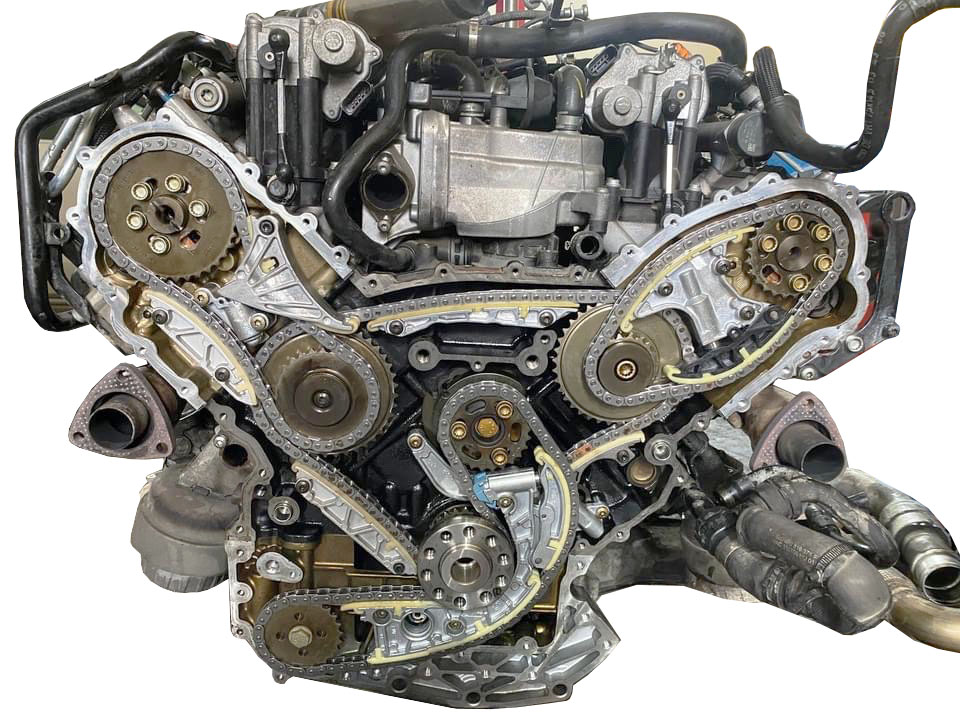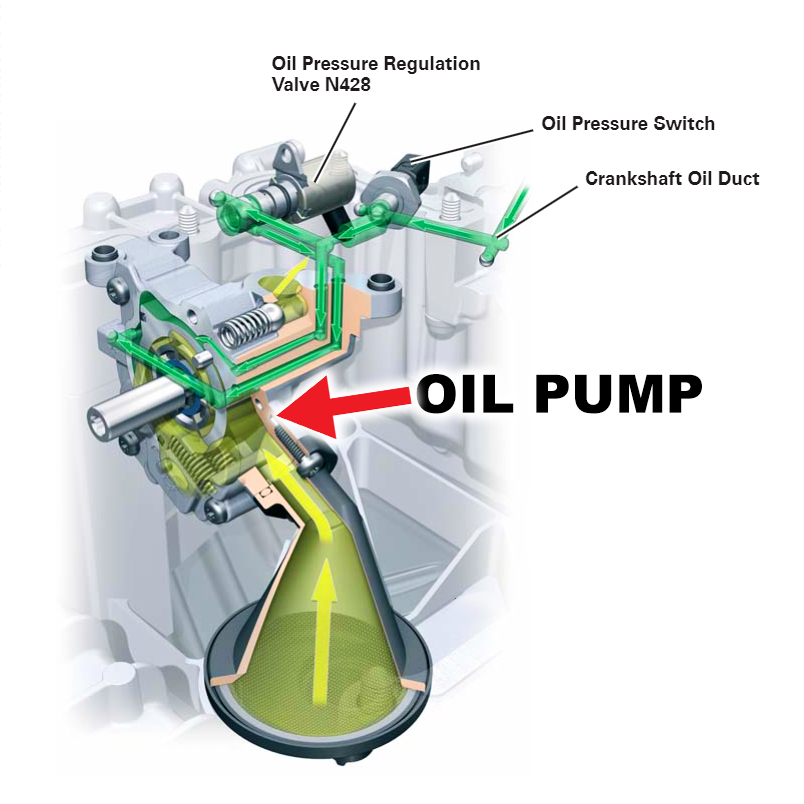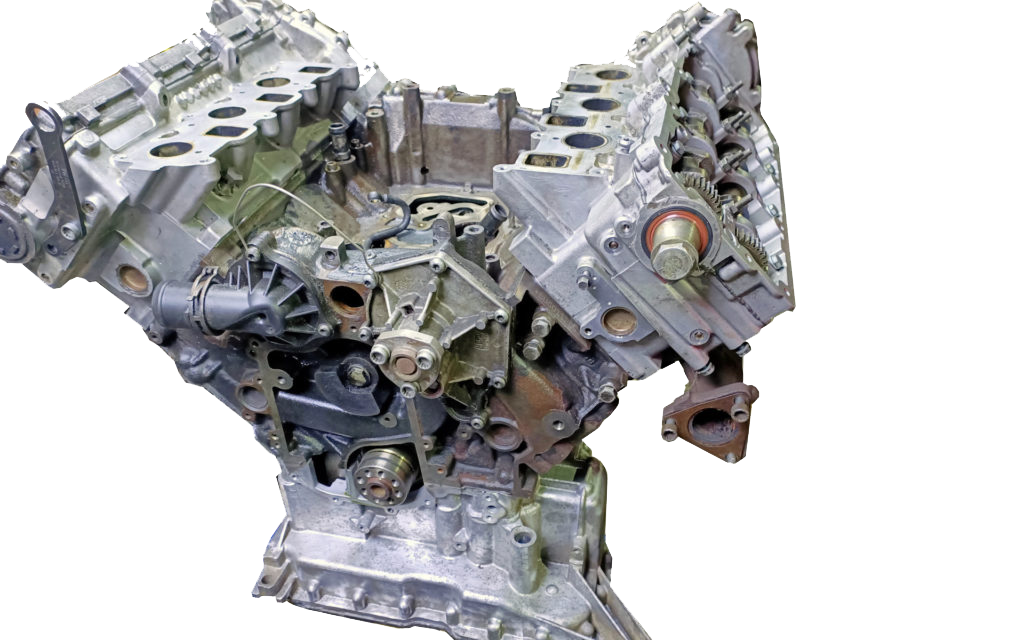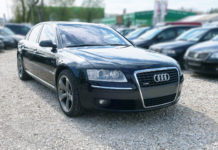The 1st generation 3.0 TDI is in my opinion one of the best diesel engines ever made. This is a V6 common rail diesel engine with a cast iron engine block, aluminum cylinder heads and with 1 electronically controlled turbocharger on top. It also has a variable intake manifold and a complex timing chain system on the back-which is maintenance wise not the best location. It has acceptable power output, good fuel consumption, repairing it is not hard (except the timing chain) and it can easily reach 500 000 km or even more. Numerous times even more than 700 000 km !
You can find this engine in many different cars ranging from a 3rd and 4th generation Audi A4 thru a first gen A8, to the 1st and 2nd generation VW Touareg or Porsche Cayenne.
Despite the fact that it can reach decent mileage, it can have numerous more or less serious issues. But before I start with the list, I have to clarify that there are 2 versions of this engine: an older and a slightly updated newer:
older 1st gen 3.0 TDI
-The older version is the simplest. It has a simple cooling and a vacuum controlled EGR system, a plastic intake manifold and it was available in cars made mostly to 2007. Mostly, since the A8 for example was available with this engine until the end of it’s production.
newer 1st gen 3.0 TDI
-The slightly newer version is roughly the same, but it has newer fuel injection parts (new injectors+HPFP), an updated cooling system + an electronically controlled EGR. It was available from the end of 2007 + it has a metallic intake manifold-which is the most noticeable visual difference from the oldest version.
The 2.7 TDI V6 is basically/technically the same engine as the 1st gen 3.0 TDI so it has the exact same issues and reliability. This engine was also available as an older and as a newer version – the exact same way as the 3.0 TDI.

Issues
Variable intake manifolds
Problems with the variable intake manifolds are inevitable. Mostly just the actuator motors fail (there are 2 of them), but the flap mechanism can be stuck or loose as well. Luckily there are cheap flap mechanism repair kits and the aftermarket actuators are not that expensive either.
Injectors
The injectors themselves can get faulty after approx. 200 000 km and the injector washers can start to leak, but I will come back to these topics at the end of the article.
High pressure fuel pump
The HPFP in the oldest engine is a Bosch CP1 which can last forever basically, without major issues. But in the newer version there is a newer Bosch CP4 pump, which will mechanically fail at some point – releasing tiny metal particles which will destroy all the injectors. Nobody knows when exactly it fails, since it can rarely fail before 200 000 km, but usually just after this mileage point or just after 400 000 km.
Using good quality fuel eventually good fuel additives will prolong the lifetime of this pump.
Turbo
The turbocharger mounted on top of the engine will fail at some point together with the electronic actuator, but mostly just in higher mileage cars – after approx. 300 000 km.
Crank pulley
The crankshaft pulley at the front will fall apart sooner or later causing the accessory belt to jump off. In this case the alternator, water pump, power steering pump and AC compressor are gonna stop working. So if the pulley looks worn or if its rusty, then it’s better to replace it preventively!
Oil leaks
The oil can start to leak from:
- valve cover gaskets
- upper injector seals
- rear main seal
- seals of the oil filter housing
- seals of the oil cooler
- + the various covers like the timing chain covers at the back or the front crankshaft cover which are sealed with sealant from the factory are gonna eventually slowly leak oil
Coolant leaks
The coolant can start to leak from:
- EGR cooler o-rings located between the cylinder heads
- thin plastic pipe on top of the engine is gonna sooner or later crack and leak coolant, so it’s good to replace it preventively since its cheap
- rubber coolant hoses on the rear right side of the engine are not gonna last a very long time – so I would highly recommend to inspect them
- the thermostat housing and the water pump are gonna leak coolant as well but that’s nothing special
Additionally I have to mention that the newer version of this engine has an additional small thermostat connected to the EGR cooler. This thermostat can occasionally leak coolant as well because of the o-ring on it. But more often it simply fails – causing the engine coolant to not reach operating temperature. So if you already replaced the main thermostat and you still have issues with the coolant temperature, then most probably this small EGR thermostat is faulty!

Timing chain
These engines are equipped with a pretty complex timing chain mechanism, but despite it’s complexity it is possible that it will withstand even 500 000 km. However this is not a rule of thumb – and that’s why after 300 000 km it’s a good idea to replace the chain mechanism preventively, or if you hear a louder/longer rattling noise from the engine at start up. Because remember, that the tensioners and the plastic guides are gonna be worn to some extent + on high mileage cars the chains will stretch as well!
On the other side, the timing chain failures on these engines causing catastrophic damage are not common. But if you hear a longer chain rattle at start up (and if you hear it even at 1500 – 2000 RPM !!) then yes, there is a chance that the chain jumps and causes engine damage!
Other stuff
1. HPFP belt
Don’t forget to occasionally replace the high pressure fuel pump belt and tensioner. This is often a neglected maintenance item which is easy and cheap to replace
2. Various sensor/switch failures can occur
3. Issues with the EGR valve or with the throttle body actuator can occur
4. Variable oil pump
The newer engines made from 2009 have a variable oil pump with 2 pressure stages regulated by a pressure regulating valve. This valve is located on the front lower part of the engine so it’s easy to see and access it. It can sometimes fail so it’s a good idea to replace this valve preventively after 200 000 km because it’s not that expensive.
This valve plays an essencial role in oil pressure regulating, so forget about the aftermarket replacements !! Buy only a genuine oil pressure regulating valve !

5. Leaking head gasket / cracked cylinder head
These engines mounted mainly in the heavy SUVs, are a bit more prone to leaking head gasket or cracked cylinder head. So pay attention to the various early and late signs of these issues. And before buying check the coolant – it has to be clean, topped up without any oil traces or oil smell. However, I have to add that this not a very common problem so there is no need to panic (the second gen 3.0 TDI is more prone to this issue).
Loss of coolant and oil in the coolant can be the first signs of leaking head gasket or cracked cylinder head.
Symptoms of leaking head gasket or cracked cylinder:
- coolant disappearing without any leaks and without any other symptoms
- occasional white smoke from the exhaust
- oil traces or oil smell in the coolant tank
- whitish sludge on the oil filler cap
- issues with interior heating-heating sometimes works sometimes not
- too much pressure in the cooling system
- engine overheating can occur too

on the next page: injectors, DPF, mysterious coolant loss















Want to get options on my thoughts. I bought my first Cayenne 2 months ago. A 2012 with 47000km on the clock and full leather interior and radar cruise control. The car is in a pristine condition. So I am very happy with my purchase and I was aware of the timing chain rattle issue on the 3lt TDI motors. However I didn’t think a motor with only 47k kilos will have the issue. Needless to say on warm startup 90% of the time the rattle are quite loud and also makes me think that the chain rattle issue is rather something to do with age rather than the amount of mileage.
So this is my idea before spending a significant amount on an engine out repair.
In my younger days with a lot less cash I drove an old 1000cc Mini with a lot of mileage and with very low oil pressure indicated on its oil pressure gauge. So I added Wynns Charge Oil treatment to the oil and that increased the oil pressure a lot.
So my idea is to add Wynns Charge to the Cayenne’s oil and see if the chain tensioner will hold the pressure for longer and maybe get rid off the rattle on warm start ups.
So I want know if anyone thinks it’s a bad idea to add Wynns Charge to my Cayenne’s oil and why?
Hi Zsolt,
I just found your channel, I am amaized about your knowledge, you showed outstanding expertism. That would be excellent if you were leaves nearby, I would definitely ask you to maintaine and repair my cars.
Yo can see my email address if you think we can contact and figure out the distance between us.
Thank you,
ZZsolt
Is it worth and economically feasible to rebuild a first gen. 3.0 TDI, specifically a BKS?
Hello! Is the 3.0tdi ASB 233hp in A4 B7 2007 a 1st gen or newer? The car is at 291,000km so should I replace the chains prevantively if I only hear a rattle starting from very cold (<0C and below) for about 0.5/1s and no rattle at all if started from cold in warm weather or hot engine.
The car doesn't have DPF and it never has been remapped so I guess it doesn't have one from factory?
The only problem I got with this car is at about 3000+ rpm on full boost i think im hearing slight squeeling/whooshing noise, i guess its a boost leak? It sound more like spinning tires but its quattro so thats out of question 😀
The other thing i wanted to ask about is, since the car has manual gearbox and i've read audi put RS4 clutch in those too, how much hp/torque can it hold before needing a clutch/smf? Will it be able to handle a remap to about 280-300hp while being conservative at low revs?
Thanks a bunch! From what I've experienced its a really smooth and well engineered engine.
-yes ASB is a 1st gen
-not all of these engines are equipped with a DPF from the factory, the DPF was standard only later
-generally speaking it is a good idea to replace the chain at around 300 000 km. I’m not saying that it won’t last more than this, but if you want to keep the car for a longer time then you should consider replacing it.
-yes can be boost leak, but also exhaust leak + you should check the turbo visually for wear/damage and for excessive play (very easy to check this on these engines)
-about the clutch I have no idea, but if its in good condition then it should last a while even with a remap
I am looking to by a maintenace book for my 2011 audi q7 tdi 3.0l CATA engine, VIN#WA1VMAFE3BD007405 can you recomend it please, to many problems with this 1st generation. Thank you.